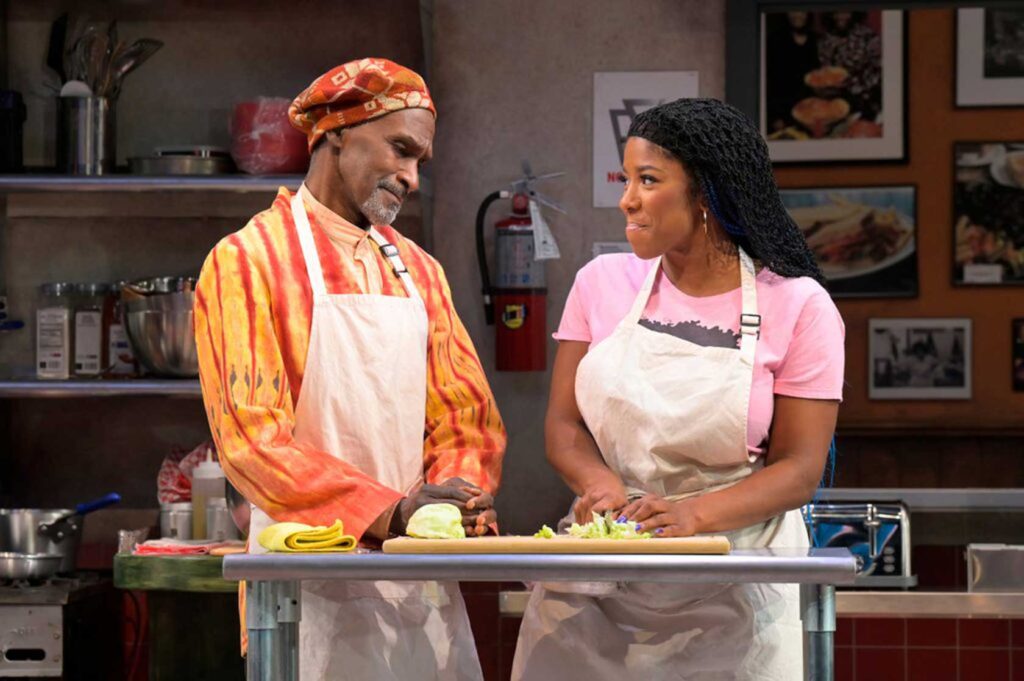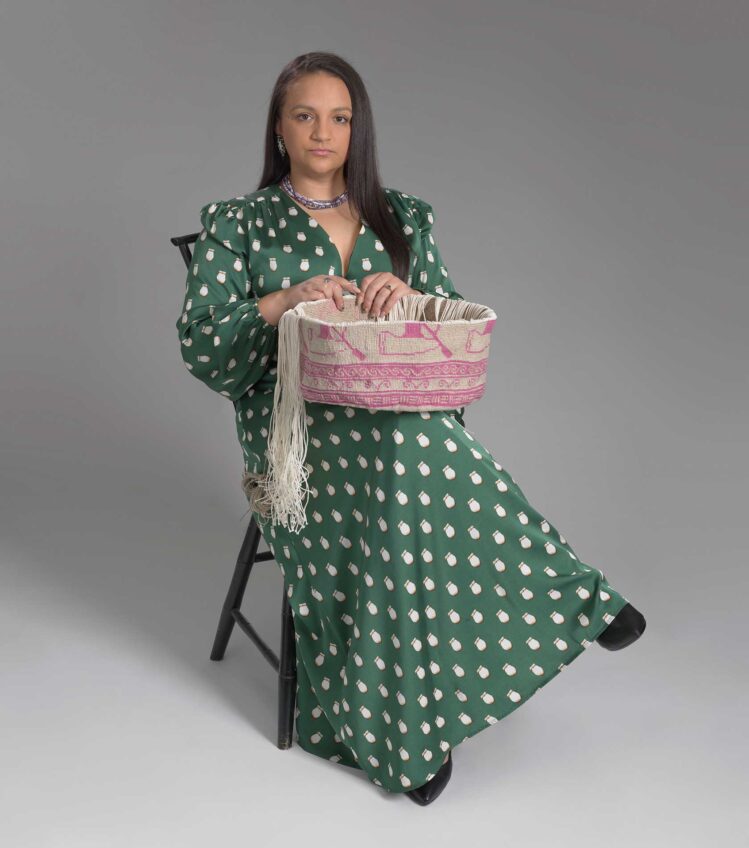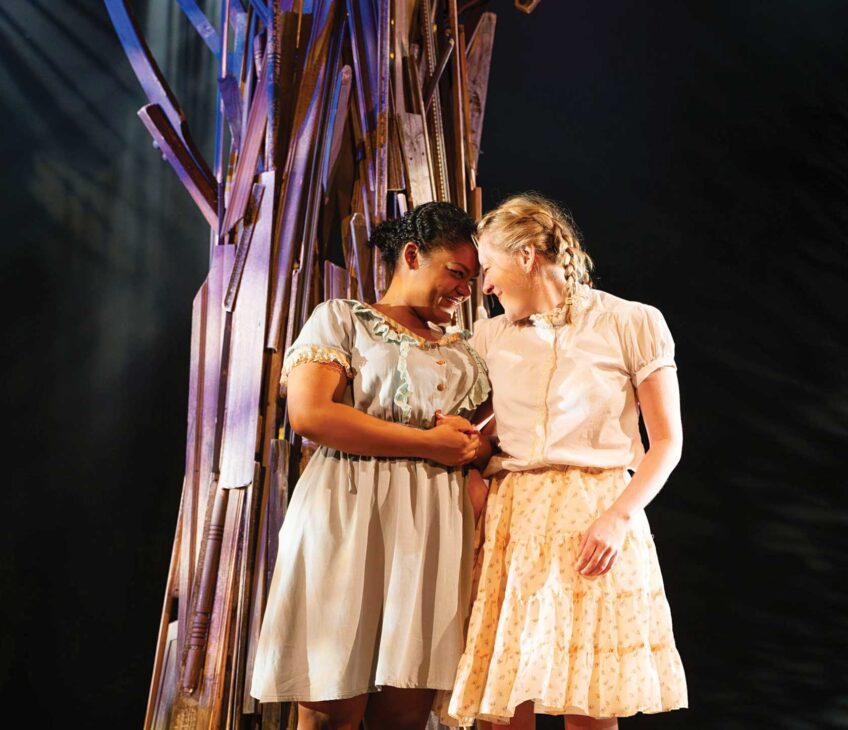
Foodies and theater-lovers alike will be satiated at The Huntington’s production of “Clyde’s” by Pulitzer Prize-winning playwright Lynn Nottage, running March 24-April 23. In 2022, the show was the most-staged production in the country, heralded for the way it brought political themes into perspective through the lives of ordinary, relatable characters.
The action in “Clyde’s” centers on a truck-stop sandwich shop, where formerly incarcerated employees put the pieces of their lives back together while searching for the perfect sandwich. The show is a laugh-out-loud comedy, but it doesn’t turn a blind eye to societal issues. In part, the piece illustrates how difficult it can be to rebuild a life after incarceration, especially when the charges were the result of a fleeting mistake rather than a serious crime.
Harold Surratt plays the Zen-like chef Montrellous, who acts as a mentor to the staff, both in their culinary pursuits and their life challenges. The actor was a teacher for nearly 15 years and is a self-proclaimed foodie, and he identifies with Montrellous’ reflective outlook.
“The character seemed really interesting and not too far from me in terms of his rhythms and how he sees the world,” says Surratt. “There’s a great line in the play — I don’t say it but somebody else says it — ‘He’s like the Buddha, except if he’d grown up in the ’hood.’”
With recipes flooding Instagram and innovative gastronomy gracing restaurant tables around the city, Boston and the United States at large seem to be going through what Surratt refers to as a “Renaissance of food.” Though ingredients, recipes and flavors are important, the sense of connectivity between cuisine and cook is what makes food an ideal emotional outlet.
The Huntington previously staged Nottage’s “Sweat” in 2020 and “Ruined” in 2011. The playwright’s works have a unique way of bringing levity and empathy to often-harsh political issues.
For Montrellous, focusing on food, a basic life necessity, is a way to channel his energy into something positive and essential. He shares that philosophy with the rest of the kitchen staff. As the characters daydream about the perfect combination of flavors for a sandwich, they dream about new possibilities for their own lives.
“It’s more than just food — it’s nutrition, it’s how we get around in life, how we think,” says Surratt. “I think people can change their lives through the love of food and the preparation and understanding of food.”








